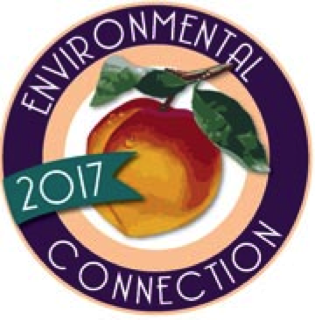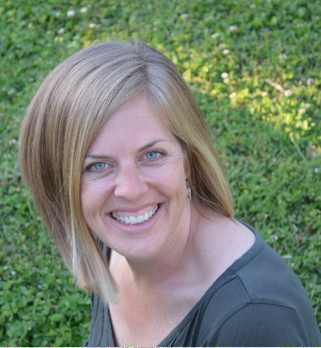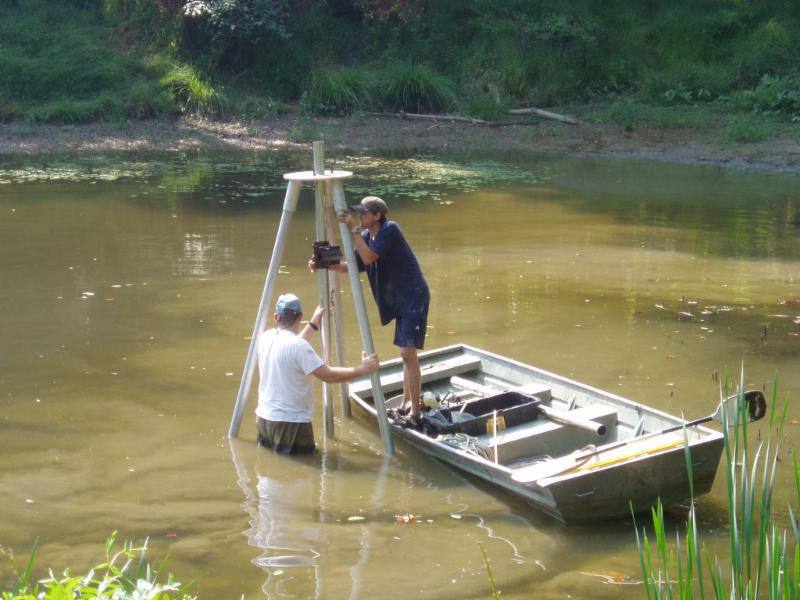Melanie McCaleb, President
Phone: 919-412-7537
J.P. Johns, Vice President
Phone:864 -315-3844
Beth Chesson, Past President
Phone:
919-628-8508
Anna Massey, Treasurer
Phone: 423-756-7193
Rich McLaughlin, Secretary
Phone:919-515-7306
Kim M. Kline, Administrative Assistant
Phone: 970-846-9015
State Representatives
Mike Perez - AL
Hal Lunsford - FL
James Moore - GA
Shelby Jett - KY
Ted Sherrod - NC
Jay Sprague - SC
Chris Todd - TN
|
TDEC sent out an announcement on Sept. 30, notifying the public that the new Construction General Permit went into effect the next day.
This is 4 months after the previous 5-year permit expired. Provisions of the Permit are still under review by the affected public and petitions for permit appeal may be filed until the end of October.
Click Here For Complete Permit
|
|
Florida Muddy Water Blues
|
The State of FL will be sponsoring a Florida Muddy  Water Blues outdoor BMP technology transfer at St. Petersburg College in Seminole, FL on February 10th coinciding with our regular indoor class on Feb. 8th and 9th. Water Blues outdoor BMP technology transfer at St. Petersburg College in Seminole, FL on February 10th coinciding with our regular indoor class on Feb. 8th and 9th.
Calling all vendors and suppliers! Help us have the largest Muddy Water Blues workshop yet!
Contact:
[email protected]
|
|
Early Bird Rate Ends Dec. 12
|
Come to EC17 in Atlanta, GA
as the Southeast Chapter will host the world's largest soil and water event!
 Sessions and vendors covering all of the IECA's educational tracks: Erosion Control, Stormwater, Surface Water Restoration, and MS4 Management
Features Full and Half day training sessions, loads of technical sessions, networking opportunities, and one of the largest expo halls of its kind!
|
|
 |
|
A Note from the President
|
Let's recap how busy our Chapter has been. Over 1500 erosion and sediment control/stormwater professionals
 attended EC 16 in San Antonio, TX in mid-February. Of the 1547 attendees, over 200 were from the Southeast region with GA, NC, and SC being the top three states for attendees from our region. Over 50 attended our Chapter Meeting and Social during the conference.
Our Southeast Chapter and Region 4 EPA co-hosted the third annual Municipal Wet Weather Stormwater Conference in Nashville, TN in May. The conference was a great opportunity to connect with other stormwater professionals from the Southeast and to visit with exhibitors that support our industry.
A special thanks to the volunteers from the Southeast Chapter Board and EPA Region 4 for planning and coordinating this event. Many thanks to the staff from IECA Region One Headquarters!
Let's make 2017 even better! Make sure to join us in Atlanta, GA at EC17 and come to our Chapter Meeting/Social. Get involved and be a part of all of the great plans our Chapter has lined up for 2017!
Thanks to all of you for everything you do to make our industry strong and educated! I look forward to see you all in Atlanta!
Melanie McCaleb, MS, CPESC
919-412-7537
[email protected]
|
South Carolina Updates
The 2016 IECA Southeast Chapter Erosion & Sediment Control Training & Field Day was held this year on October 6
th, 2016 at TRI Environmental's Denver Downs Research Facility in Anderson, SC.
The event attracted a record 250-plus attendees, vendors, and sponsors, and was a huge success! The theme of this year's program was "New Products and Innovative Ideas," and consisted of a morning session of technical presentations and an afternoon session of field demonstrations. The morning technical sessions covered topics ranging from new uses for organic compost and soil amendments, to updates from SC-DHEC. The afternoon session provided a chance for vendors to show off their new products in field trial scenarios, and gave attendees the opportunity to see new and innovative erosion and sediment control products in action!
Attendees observed and discussed new silt fence technologies with graduated flow characteristics for challenging job sites, innovative anchoring systems for turf reinforcement matting, and installation techniques for unique floating skimmer designs. All attendees were awarded 6.5 PDH credits for their attendance, and valuable knowledge of innovative new products and ideas in the erosion and sediment control industry.
The IECA Southeast Chapter would like to thank TRI Environmental for hosting, and the vendors, sponsors, and attendees of this year's event for making it all possible. Stay tuned to IECA for information on the 2017 IECA Southeast Chapter Erosion & Sediment Control Training & Field Day!
|
Alabama Updates
Auburn University - Erosion and Sediment Control Facility hosted two successful training events including an Installer Workshop and a Field Day. We had over 150 participants between the two events and about a dozen sponsors.

Barry Fagan and Mike Perez through Volkert, Inc. hosted five ESC design workshops for qualified credential professionals in Madison, Irondale, Tuscaloosa, Montgomery, and Spanish Fort, AL. All together we had 150 participants.
Upcoming events: The AU-ESCTF will be hosting a Research Showcase at our facility during the pre-conference activities at EC17on Feb. 21, 2017.
CLICK HERE of information and registration details.
|
|
|
|
Solar Farming A Big Land Disturber?
|
By Ted Sherrod, - North Carolina Representative
(Acknowledgements to Karyn Pageau and Matt Gant of NCDEQ for their contributions to this article)
North Carolina ranks third in the nation, behind California and Arizona, in the amount of cumulative solar electric capacity installed (Solar Industries Energy Association, SEIA, March 2016). If you have traveled in the state over the last year or so, you will most likely have seen a
 |
|
 |
Good staged seeding and mulching between grading and pole installation.
Photo courtesy of NCDEQ
|
new solar farm beside an interstate right of way fence or along a rural country road where tobacco, sweet potatoes, and soybeans were formerly grown.
Based on data from NCDEQ, E&SC plans for solar farms have grown meagerly from just a few sites from 2008 to 2012 but have mushroomed in the past three years to 139 sites in 2015.
While most sites include land disturbance of 50 acres or less, some sites have disturbed over 1000 acres. Of course, each of these sites requires an approved E&SC plan from NCDEQ.
Check out the lessons learned over the past few years,
CLICK HERE to see tips during plan review and plan implementation.
|
|
Two Contrasting Views of Stream Sediment Sources
|
By Richard A. McLaughlin, Ph.D., - North Carolina State University
(Originally published in IECA Environmental Connections,
Volume 9 (3):8-9.)
Many of us are involved in protecting water quality in one way or another, often by stabilizing the landscape and preventing erosion. Urban and suburban streams still tend to become very turbid during storm flows, and unfortunately this is part of the reason sediment is one of the leading pollutants in our waters. But where does this sediment come from? Even apparently stable,  built-out watersheds can produce muddy flows following storm events. Two studies in the Maryland Piedmont have come to very different conclusions about sediment sources in these streams. built-out watersheds can produce muddy flows following storm events. Two studies in the Maryland Piedmont have come to very different conclusions about sediment sources in these streams.
Smith and Wilcock selected six ponds that were far enough up in the landscape to be receiving flow from areas that primarily only one use type: forest, agriculture, or suburban development1. All areas were in that land use for the life of the pond, and the researchers were able to use historical aerial photography to verify any changes in the channels leading into the ponds. They conducted detailed surveys of the ponds to determine how much sediment had accumulated over the 13-39 years the ponds were in place. The forested watershed yielded 0.3 - 1.4 Mg ha-1 yr-1 (0.1-0.6 ton ac-1), the agricultural watershed 1.0 - 3.4 Mg ha-1 yr-1 (0.4-1.5 ton ac-1), and the suburban watershed 3.7 - 5.3 Mg ha-1 yr-1 (1.6-2.3 ton ac-1). In all cases, the higher sediment yield was the result of erosion in the channel leading into the pond. CLICK HERE to see what the authors suggest.
|
Dec. 14, 2016
|
QCI Certification Training Thompson Engineering
|
Mobile, AL
|
Jan. 24-26, 2017
|
Stream Restoration Design Workshop
|
Auburn, AL
|
Feb. 21-24, 2017
|
IECA Environmental Connection Conference
|
Atlanta, GA
|
Feb. 21, 2017
|
2017 MSD Field Day Contact Shelby Jett: [email protected]
|
Louisville, KY
|
May 15-17, 2017
|
2017 Municipal Wet Weather Stormwater Conference Hosted by EPA Region 4, IECA Southeast Chapter and IECA Region One
|
Charleston, SC
|
|
|
Call of Presentations - 2017 Municipal Wet Weather Stormwater Conference
|
|
Call for Presentations
The EPA Region 4 and the Southeast Chapter of the International Erosion Control Association (IECA) Region One are hosting their fourth annual Municipal Wet Weather Stormwater Conference. The event will be held at the Crowne Plaza Charleston, Monday, May 15 - Wednesday, May 17, 2017. The Call for Presentations is currently live, please click below to submit your abstract. Speaking at the MS4 Conference in Charleston demonstrates that you are serious about industry education. This conference provides you a platform to share insights and content with your peers, enhance your professional development, and learn from your colleagues, while gaining recognition for your advancements in stormwater management and MS4 field.
Hot Topics
- Underground Stormwater Management
- Climate Change
- Shoreline stabilization and sea level rise
- Dam Safety
- Stream Monitoring TMDL alternative plans
- Stormwater runoff reduction
- Developing good housekeeping programs for MS4s that really work
- Case studies for innovative BMPs
- Post construction stormwater
- BMP long term operation and maintenance strategies
- Using risk based asset management strategies to maintain stormwater systems
|
|
|
|
|
Copyright © 2016. All Rights Reserved.
|
|
|
|